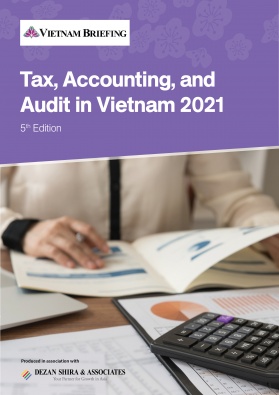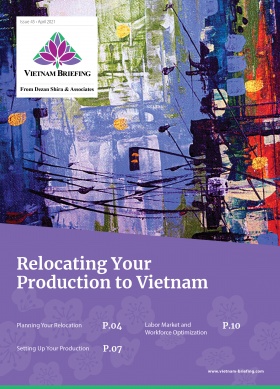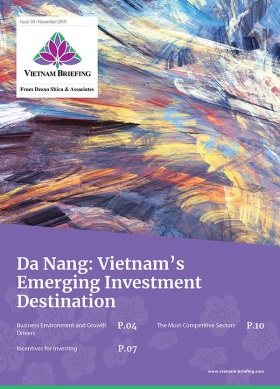Vietnam Encouraging More Singaporean Investments in Da Nang
Vietnam is eager to encourage more Singapore investments into Da Nang city, as its Vice-Chairman highlighted the city’s growth plans at an online seminar organized by the Singapore Business Federation (SBF) and the Asia Competitiveness Institute (ACI)-Lee Kuan Yew School of Public Policy on May 12, 2021.
Da Nang recently amended its 2030 master plan, with a vision to 2045, which will see the city aim to be a socio-economic center for entrepreneurship, innovation, commerce, and finance in Southeast Asia.
Singaporean companies have invested in some 28 projects in Da Nang, totaling US$838 million. It makes Singapore the second-largest source of foreign investment in the city, accounting for 22 percent of registered capital in Da Nang. Moreover, among the 112 or so countries that invested in Vietnam in 2020, Singapore led with investments worth US$9 billion, or 31.5 percent of total investments.Da Nang is actively seeking more Singaporean investments in areas such as tourism, seaports and airports constructions, marine industries, high-tech manufacturing, automation, digital economy, education, and healthcare, among others.
Singapore is renowned for its world-class manufacturing system and skilled and adaptable workforce — the country was ranked third on the 2020 Global Talent Competitiveness Index.
What incentives are available for Singaporean investors in Da Nang?
Singaporean investors are eligible for a number of investment incentives, although this does depend on the given industry and the value of the investment.
Da Nang’s industrial parks (IPs) offer some of the more favorable conditions for foreign investors; the city has six IPs and one high-tech park — with the latter designated for companies that produce state-of-the-art products, such as computer chips and medical components.
The Da Nang High Tech Park provides corporate income tax exemption for the first four years, and five percent of the next nine years, followed by 10 percent for the ensuing two years. Investments valued at more than US$130 million will be subject to a 10 percent corporate income tax rate for 30 years.
The incentive schemes for the Da Nang High Tech Park, the software export sector, and the general supporting industry are highlighted in the following tables.
Infrastructure and regional connectivity
Da Nang serves as a gateway to Vietnam’s Central Region and is located on the eastern end of the East-West Economic Corridor (EWEC) — a key development program to promote the integration of Myanmar, Thailand, Laos, Cambodia, and Vietnam.
The city is also known for its synchronized transport network. The city’s railway station is the largest in the Central Region and the new Nang – Quang Ngai Highway connects Da Nang to the Chu Lai and Dung Quang Economic Zones.
Da Nang is planning to open a tender for the development of a new port next year. The Lien Chieu port project will have a deadweight capacity of 100,000 tons and a container capacity of 8,000 twenty-foot equivalent units (TEU), and a throughput capacity of 46 million tons per year by 2030.
Da Nang officials will look to Singapore’s own success with the Port of Singapore, which is known for being the world’s busiest container transshipment hub and offers connectivity to 123 other international ports. A large, automated container terminal, named Tuas Port, is currently being built at the port, and when completed in 2040, will be the world’s biggest fully automated terminal.
In addition to seaport development, Da Nang is looking to upgrade its international airport to two full runways, expand Terminal 1 to accommodate up to 14 million passengers per year, build a new Terminal 3, and expand the cargo terminal.
About Us
ASEAN Briefing is produced by Dezan Shira & Associates. The firm assists foreign investors throughout Asia and maintains offices throughout ASEAN, including in Singapore, Hanoi, Ho Chi Minh City, and Da Nang in Vietnam, Munich, and Esen in Germany, Boston, and Salt Lake City in the United States, Milan, Conegliano, and Udine in Italy, in addition to Jakarta, and Batam in Indonesia. We also have partner firms in Malaysia, Bangladesh, the Philippines, and Thailand as well as our practices in China and India. Please contact us at asia@dezshira.com or visit our website at www.dezshira.com.
- Previous Article How Can Indian Businesses Capitalize on ASEAN’s E-commerce Boom?
- Next Article Malaysia Introduces Pemerkasa Plus Economic Stimulus Package









